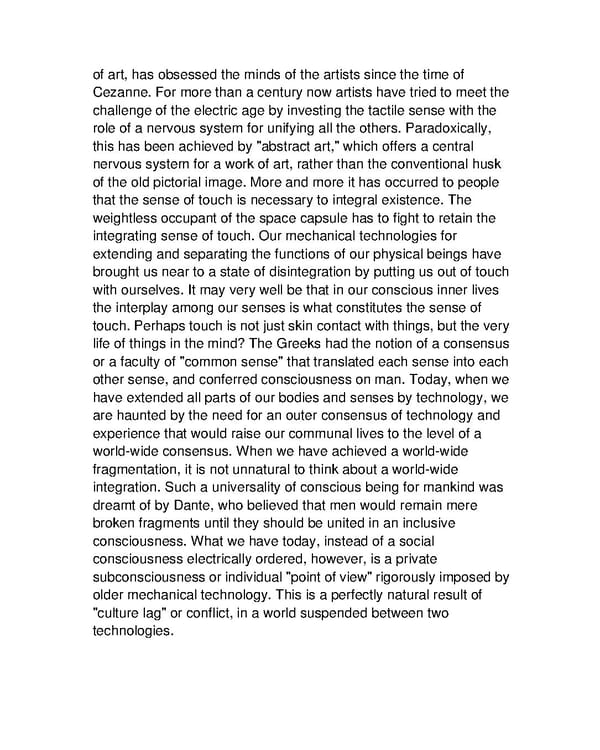of art, has obsessed the minds of the artists since the time of Cezanne. For more than a century now artists have tried to meet the challenge of the electric age by investing the tactile sense with the role of a nervous system for unifying all the others. Paradoxically, this has been achieved by "abstract art," which offers a central nervous system for a work of art, rather than the conventional husk of the old pictorial image. More and more it has occurred to people that the sense of touch is necessary to integral existence. The weightless occupant of the space capsule has to fight to retain the integrating sense of touch. Our mechanical technologies for extending and separating the functions of our physical beings have brought us near to a state of disintegration by putting us out of touch with ourselves. It may very well be that in our conscious inner lives the interplay among our senses is what constitutes the sense of touch. Perhaps touch is not just skin contact with things, but the very life of things in the mind? The Greeks had the notion of a consensus or a faculty of "common sense" that translated each sense into each other sense, and conferred consciousness on man. Today, when we have extended all parts of our bodies and senses by technology, we are haunted by the need for an outer consensus of technology and experience that would raise our communal lives to the level of a world-wide consensus. When we have achieved a world-wide fragmentation, it is not unnatural to think about a world-wide integration. Such a universality of conscious being for mankind was dreamt of by Dante, who believed that men would remain mere broken fragments until they should be united in an inclusive consciousness. What we have today, instead of a social consciousness electrically ordered, however, is a private subconsciousness or individual "point of view" rigorously imposed by older mechanical technology. This is a perfectly natural result of "culture lag" or conflict, in a world suspended between two technologies.
 Understanding Media by Marshall McLuhan Page 121 Page 123
Understanding Media by Marshall McLuhan Page 121 Page 123